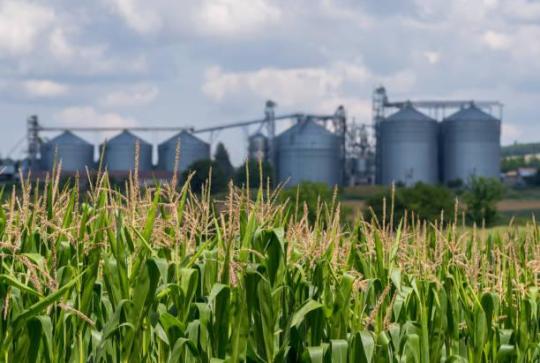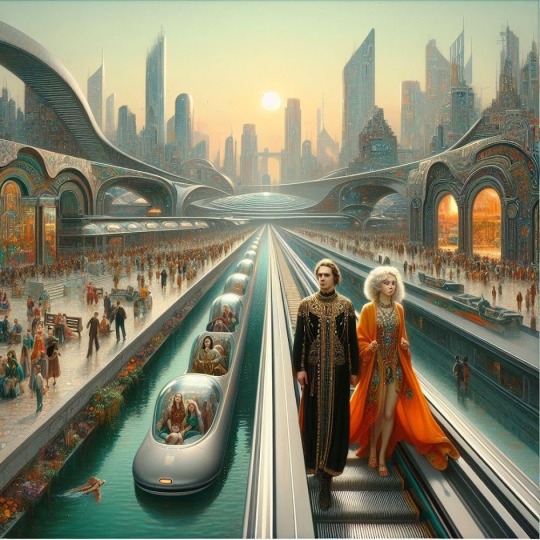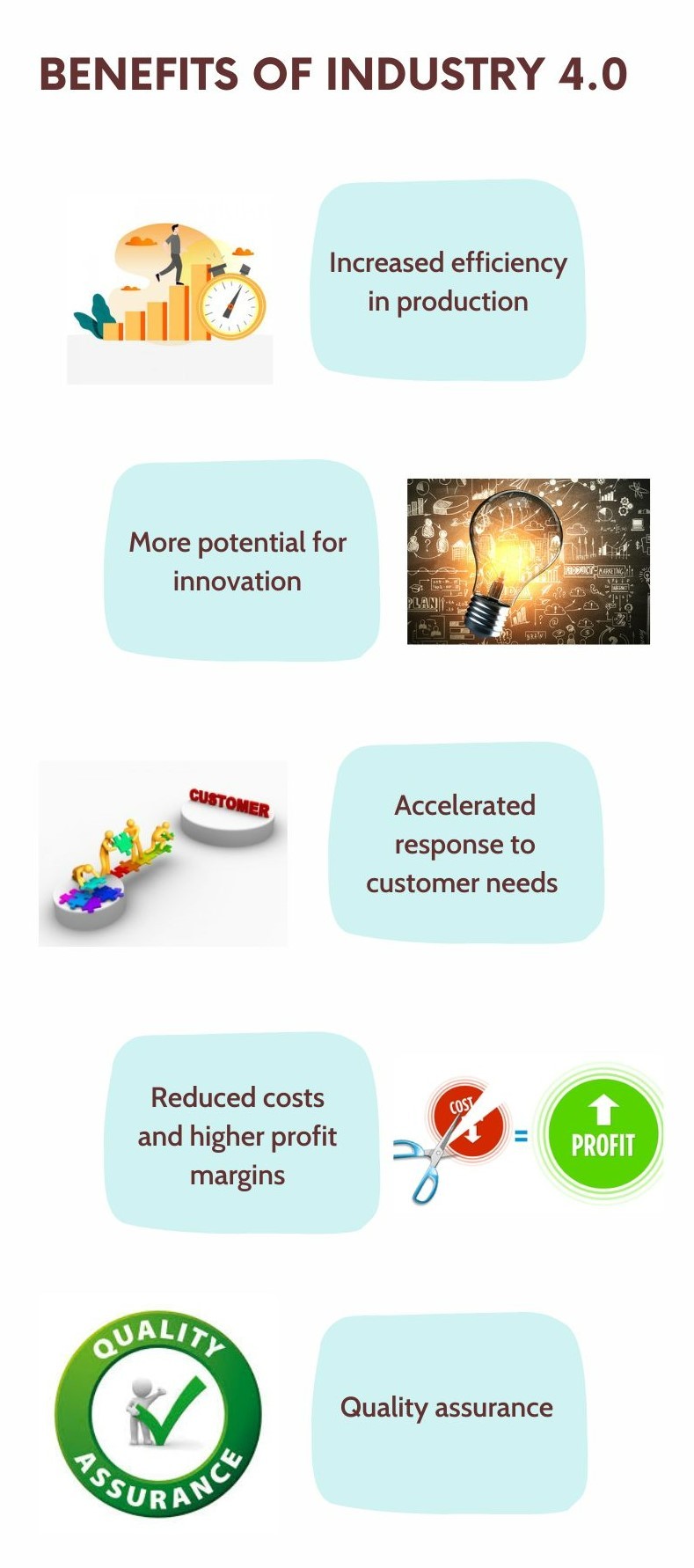#fourth industrial revolution
Text
Are we witnessing a genocide? Covid bioweapon injections and Covid measures
#mrna vaccine#covid 19#covid19#covid vax#coronavirus#covid vaccine#globalist agenda#crimes against humanity#war crimes#world economic forum#new world order#fourth industrial revolution#digital identity#digital control#mrnacovid#genocide#depopulation#death rates#informed consent#informeddecisions#transhumanism#patientsafety#freedom train international#transfection#trends
4 notes
·
View notes
Text
Prophecy Brief: Will the digital currency be the Mark of the Beast?
Scripture: Genesis 11, Rev. 6:1, Rev. 13, Daniel 9:27, Daniel 11:31, 12:11, Matt. 24:15, 2 Thess. 2, Rev. 14:9-11
youtube
View On WordPress
#Agenda 2030#Beast#Bible prophecy#BIS#BRICS#Calvary#China#Christ#Church#climate Change#COVID#Cross#Daniel#Eschatology#ESG#Ezekiel#Faith#False Prophet#FedNow#Fourth Industrial Revolution#G7#Globalism#Good News#Gospel#Great Reset#Heaven#Holy Spirit#Hope#ID2020#Iran
2 notes
·
View notes
Link
By Matthew Ehret
As we move further into the vortex dubbed ‘the Great Reset’, one gets a sense of a creepy cultish mode of speaking among some of the top echelons of imperial thinkers setting the cultural tone for the proceedings which profess to profoundly transform a new epoch in human history. World Economic Forum shining stars like Yuval Harari, Klaus Schwab, and Ray Kurzweil speak giddily about an impending evolutionary shift where human society will become something more than human.
Renowned futurist and lead Google Engineer Ray Kurzweil gave this moment of bifurcation a name: “The Singularity”. In 2005, he described this moment saying: “Our version 1.0 biological bodies are likewise frail and subject to a myriad of failure modes… The Singularity will allow us to transcend these limitations of our biological bodies and brains… The Singularity will represent the culmination of the merger of our biological thinking and existence with our technology, resulting in a world that is still human but that transcends our biological roots. There will be no distinction, post-Singularity, between human and machine or between physical and virtual reality.”
Kurzweil and Harari even predicted the date 2050 to be the magical moment which the new age of human-machine unification will be consolidated, as artificial intelligence, bio-engineering babies with CRISPR technology, and interfacing our brains with microchips in the ‘internet of things’ will finally see the birth of a new species.
#transhumanism#pierre teihard de chardin#fourth industrial revolution#world economic forum#cyborg#ray kurzweil#singularity#iob#internet of bodies#genetic engineering#genetically modified organism#crispr#literature#julian huxley
6 notes
·
View notes
Text

Technologies driving Industry 4.0
#revolution industry#industry 4.0 revolution#industry fourth revolution#fourth industrial revolution#industry 4.0#industry 4.0 in manufacturing
3 notes
·
View notes
Text
Unveiling Agricultural Transformation Through Technology: Fourth Industrial Revolution Technologies Can Revolutionise Farming Practices in Emerging Economies

In a dynamic landscape where technology continuously reshapes industries, the agriculture sector stands at the forefront of transformation. The report by the World Economic Forum, titled “Agritech: Shaping Agriculture in Emerging Economies, Today and Tomorrow,” unveils the pivotal role of Fourth Industrial Revolution technologies in revolutionising global agriculture. These innovations promise to not only address pressing challenges but also pave the way for sustainable food security.
The integration of technologies such as augmented reality, artificial intelligence (AI) for weather prediction, traceability systems, smart logistics solutions, and the Internet of Things (IoT) holds immense potential in empowering farmers and improving agricultural productivity. By leveraging these tools, farmers can bridge information gaps, optimise resource allocation, and mitigate risks associated with climate variability and environmental degradation.
Read More:(https://theleadersglobe.com/life-interest/food/unveiling-agricultural-transformation-through-technology-fourth-industrial-revolution-technologies-can-revolutionise-farming-practices-in-emerging-economies/)
#fourth Industrial Revolution#global leader magazine#the leaders globe magazine#leadership magazine#world's leader magazine#best publication in the world#article#news#magazine#business#transforming agricultural
0 notes
Text
by way of reflection:
Generative Notes: 0001
by way of reflection: Hegel, in the Phenomenology of the Spirit, sees in the “human drama of the epic” an act which is the vulgar violation of the peaceful land – it is better to say – that the plunderer finds victory in the peace of the tombs.
14 de Dec de 2023
Rodrigo Granda
https://thecityofmexicocorporation.wordpress.com/2023/12/14/generative-notes-0001/

#Cities#City#history#Mexico City#Urban City#Urban planning#America#Anaximander of Miletus#Bibliotheca Americana#China#City of Mexico#Cuarta Transformación#European#European Americana#Fourth Industrial Revolution#Fourth political theory#Georg Wilhelm Friedrich Hegel#Greek#Hispanic#Historical analysis#Jacques Derrida#Lakeside City#Mal d’archive#Philosopher#Polis#Roman Empire#Thales of Miletus#Vatican#World Economic Forum
0 notes
Text
Navigating the Fourth Industrial Revolution: A Roadmap for Sustainable Digital Transformation
In the era of the Fourth Industrial Revolution (4IR), businesses are compelled to undergo a profound digital transformation to stay competitive. This article provides a comprehensive roadmap for sustainable digital transformation, guiding organizations through the intricate landscape of technological advancements.
The journey begins with a strategic understanding of the Fourth Industrial Revolution’s core elements, emphasizing the importance of embracing emerging technologies like Artificial Intelligence (AI), Internet of Things (IoT), and Blockchain. These technologies act as catalysts, propelling businesses into a new era of innovation and efficiency.
To thrive in this transformative landscape, organizations must prioritize agility and adaptability. The article emphasizes the significance of cultivating a culture that fosters continuous learning and innovation. This adaptability is crucial for navigating the dynamic challenges posed by the 4IR.
Furthermore, a robust cybersecurity strategy is highlighted as a non-negotiable aspect of digital transformation. As businesses integrate advanced technologies, safeguarding sensitive data becomes paramount, ensuring resilience against cyber threats.
The roadmap also stresses the importance of collaboration and partnerships in the digital age. By fostering alliances with industry leaders and leveraging shared expertise, organizations can accelerate their digital initiatives and navigate the complexities of the 4IR more effectively.
In conclusion, this article serves as a valuable guide for businesses embarking on the journey of digital transformation during the Fourth Industrial Revolution. By understanding the core technologies, fostering adaptability, prioritizing cybersecurity, and embracing collaboration, organizations can pave the way for a sustainable and successful digital future.
Read the full article here https://techmoduler.com/navigating-the-fourth-industrial-revolution-a-roadmap-for-sustainable-digital-transformation/
0 notes
Text
Why The Globalist Technocracy Will Fail
The globalist corporate elite have announced their plans for the world, via the WEF, the World Economic Forum’s publicly released vision for 2030, among other venues. Their plan is most accurately described as a global neo-colonial imperialist project of consolidating and further centralizing all power, all wealth, and all ownership, in their hands.
It is a hybrid global system they are pushing…
View On WordPress
#activism#analysis#awakening#collapse#Davos#empire#environment#fascism#Fourth Industrial Revolution#freedom#Gandhi#geopolitics#Green New Deal#history#hubris#imperialism#liberty#lithium#MLK#neo-colonialism#over-reach#over-stretch#peak everything#peak oil#philosophy#police state#political philosophy#political theory#politics#popular movements
0 notes
Text
You might have heard of the Fourth Industrial Revolution, or Industry 4.0, which brought a wave of technology and automation into our factories and daily lives. But hold onto your hats because there’s something new on the horizon: Industry 5.0. Moreover, it’s like the next level of the game, building upon what Industry 4.0 started. Thus, the world is talking about Industry 5.0, and it’s time to dive deep to understand the impact it will have.
#Industry 5.0#Fourth Industrial Revolution#Industry 4.0#future as Industry 5.0#advanced tech#Collaboration of Technology and Human Synergy#technologies
1 note
·
View note
Text
Why an MES solution Is Critical for Food Manufacturers

The fourth industrial revolution is underway, and now is the moment for the food industry to embrace digitisation. Digitalising processes is critical for manufacturers to stay competitive and meet industry safety and quality standards. Implementing a Food manufacturers software like MES is one established technique for achieving these aims.
There is no replacement for high-quality foods that are high in nutritional worth. And, when it comes to producing such high-quality products, mastering the shop floor is the only way to go.
A food manufacturing company's shop floor is one of its most significant departments. It's here that the actual production takes place. On the other hand, Machine downtime and human errors are frequent visitors on the shop floor.
The food business cannot continue to function at the level of efficiency required to make profits without a simplified shop floor. That's when software like MES (Manufacturing Execution System) comes into use. In this article, we will see what the MES solution is in the Food industry and its benefits.
What is the role of the Manufacturing Execution System in the Food Industry?
A Manufacturing Execution System (MES) can track and document the whole food manufacturing process, from selecting and acquiring raw materials to packing the finished product for distribution. The data collected can then be sent back into the manufacturing process, allowing the company to enhance operations and standardise processes while ensuring complete traceability.
Food industry MES system is a vital tool that provides operational coordination, performance statistics, and a basis for better communication to optimise operations. Immediate decisions and adjustments can boost productivity and flexibility, while process efficiencies are optimised through quality control and asset usage.
The food and beverage sector relies on food safety and quality validation processes, and an MES can help monitor crucial variables. If food manufacturers want to comply with relevant regulations, they must have an audit trail.
In the possibility of a food-related public health scare, the capacity to trace every ingredient utilised in your food production methods could be vital to the survival of your business.
Food manufacturers can use MES software to manage resources better, streamline operations, increase efficiency, and increase profits. Every minor advantage acquired can help you stay ahead of the competition in a highly competitive business like food manufacturing.
Why should you use the MES solution for your food industry?
For most food organisations, there's an existing mentality that integrating MES technology into business is complicated and intrusive, but avoiding technology will only make it harder to compete in the future.
Implementing MES in your business aims to boost profit margins by creating more sellable products and lowering costs. Though this comes at a higher expense at first, the long-term advantages of this investment will benefit the company and bring value to the bottom line. Measuring a tangible return is what sets a business up for lasting success.
Introducing technology to the shop floor is only as complex as the firm makes it. Begin by distributing small items, such as tablets, to allow staff to become accustomed to the system. More can be added and altered to boost efficiency once that has become a regular part of your operation.
Every business has a technology solution—you have to pick the proper software. FactoryWorx MES Platform Solutions help manufacturing organisations grow in today's globally competitive environment. Their innovative MES software links all internal manufacturing operations, ERP, teams, and digital and physical processes through advanced traceability and transportation components with the whole value chain.
FactoryWorx allows you to integrate all production process areas, including product-related logistics, using over 30 modules. With powerful strategic MES modules like FactoryWorx Team Management, FactoryWorx MES differentiates from its competition. By harnessing the human element, you will deliver an excellent level of your firm performance as a brand.
What role does MES software play in quality control and compliance in the food industry?
This technique eliminates the possibility of human error by:
Real-time tracking checks
Informing the right person or team if something requires attention.
Check items are marked to verify quality, eliminating the need for human checkers.
Eliminating falsification, data manipulation, and pencil-whipping
Every hour, checks are introduced into the operator workflow to eliminate the need for watch and review.
Most importantly, MES software can generate a complete audit trail at the touch of a button, saving the factory time and resources required by traditional methods.
MES software is designed to improve shop floor efficiency by providing accurate data, real-time warnings, and more precise communication between individuals and teams. Food and beverage manufacturers can't afford to make mistakes regarding quality control and compliance, and MES software helps them save time without sacrificing quality.
A fit-for-purpose manufacturing execution system (MES) could help food businesses move their company culture toward continuous improvement and action.
Integrating MES technology into your business's operations should be handled appropriately. Price, compliance, and... Read in detail
0 notes
Text
Prophecy Brief: The upcoming BRICS vote
youtube
View On WordPress
#Agenda 2030#Beast#Bible prophecy#BIS#BRICS#Calvary#China#Christ#Church#climate Change#COVID#Cross#Daniel#Eschatology#ESG#Ezekiel#Faith#False Prophet#FedNow#Fourth Industrial Revolution#G7#Globalism#Good News#Gospel#Great Reset#Heaven#Holy Spirit#Hope#ID2020#Iran
3 notes
·
View notes
Photo

(via Councils' role supporting the digital skills pipeline | Local Government Association)
Overview
The UK tech industry is considered unparalleled in Europe in terms of size and power and the Government has earmarked the sector and the ‘fourth industrial revolution’ as a key pillar of the country's recovery and future growth.
This follows on from the Government’s recent policy paper ‘Build Back Better: our plan for growth’ which set out the Government’s ambition to “make our country a science and technology superpower.”
0 notes
Link
0 notes
Text

#fourth industrial revolution#industry fourth revolution#industry 4.0 revolution#revolution industry#industry 4.0 in manufacturing#industry 4.0
0 notes
Text
Navigating Urban Living in the Fourth Industrial Revolution: Key Impacts
In the digital era, the Fourth Industrial Revolution (4IR) is reshaping the landscape of urban living, ushering in a new wave of technological advancements. This revolution, characterized by the integration of cutting-edge technologies like artificial intelligence, blockchain, and the Internet of Things, is significantly transforming the way cities function.
The influence of 4IR on urban living is multifaceted, touching upon various aspects of daily life. Intelligent infrastructure, driven by AI, is enhancing efficiency in transportation, energy, and resource management. The seamless connectivity facilitated by the Internet of Things is fostering a smart city ecosystem, promoting sustainability and resource optimization.
Blockchain technology is contributing to secure and transparent urban governance systems, ensuring the integrity of data in areas such as public services and administration. Additionally, the rise of automation is reshaping the job market, leading to a demand for a workforce equipped with digital skills.
As urban centers evolve under the influence of 4IR, challenges and opportunities emerge. While technological innovations enhance convenience and connectivity, issues related to privacy, cybersecurity, and equitable access to resources need careful consideration. Balancing the benefits and challenges is crucial for creating inclusive and resilient urban spaces.
In conclusion, the Fourth Industrial Revolution (Industry 4.0)is a game-changer for urban living, revolutionizing infrastructure, governance, and the workforce. Adapting to these changes is essential for cities to thrive in the digital age, ensuring a harmonious coexistence between technology and the well-being of urban dwellers.
Read the full article here https://tefwins.com/the-fourth-industrial-revolution-and-its-impact-on-urban-living/
0 notes